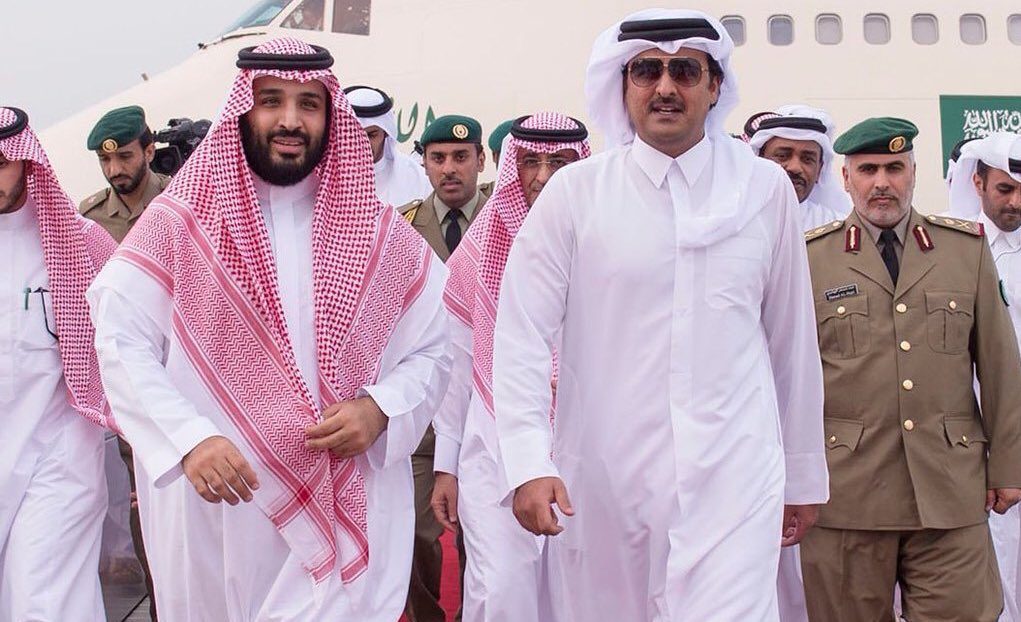The Middle East initiative aims to help reduce carbon emissions by planting 40 billion trees.
Qatar’s Amir Sheikh Tamim bin Hamad Al-Thani will be participating in the Middle East Green Initiative Summit in Riyadh on Monday at the invitation of Saudi Crown Prince Mohammed bin Salman [MBS], the Amiri Diwan announced.
Pakistan’s Prime Minister Imran Khan, Morocco’s Prime Minister Aziz Akhannouch and Tunisian Prime Minister Najla Boden are among those expected in Riyadh for the event.
John Kerry, the first Special Presidential Envoy for Climate for the United States, will also make a special address.
سمو الأمير المفدى يغادر أرض الوطن، متوجها إلى المملكة العربية السعودية الشقيقة للمشاركة في قمة #مبادرة_الشرق_الأوسط_الأخضر بمدينة الرياض. https://t.co/3MA9iube8U
— الديوان الأميري (@AmiriDiwan) October 25, 2021
vSaudi Arabia aims to plant 10 billion trees over the next decades in order to help reduce carbon emissions, pollution and land degradation, with a target set by the kingdom to generate half of its energy using renewables by 2030.
The Middle East Green Initiative also aims to plant 40 billion trees in what MBS said “would be the world’s largest reforestation programme”, Reuters reported.
Riyadh aims to reduce carbon emissions produced by hydrocarbon production by more than 60% by collaborating with regional partners, the Saudi prince added.v
In a phone call in March this year, the two leaders reviewed the “Saudi Green Initiative” and the “Middle East Green Initiative” while also discussing the importance of joint action to tackle regional environmental challenges.v
“As a leading global oil producer, we are fully aware of our responsibility in advancing the fight against the climate crisis, and that just as we played a leading role in stabilising energy markets during the oil and gas era, we will work to lead the coming green era,” MBS said in March.
The participation of Sheikh Tamim in Riyadh is yet another indicator of developing relations between Doha and Riyadh, both of which were involved in a bitter dispute that left Qatar blockaded for three years.
Saudi Arabia, along with the UAE, Bahrain and Egypt, imposed an illegal air, land and sea blockade on Qatar in 2017 over allegations that Doha funds terrorism. Qatar vehemently denied these claims.
The embargo was lifted and diplomatic relations between the former blockading quartet resumed with the signing of the Al-Ula Declaration earlier this year.
The Al Ula accord between the GCC states and Egypt was not made public, but entailed more joint action in order to combat issues that pose a threat to the region’s security and stability.
Follow Doha News on Twitter, Instagram, Facebook and Youtube







